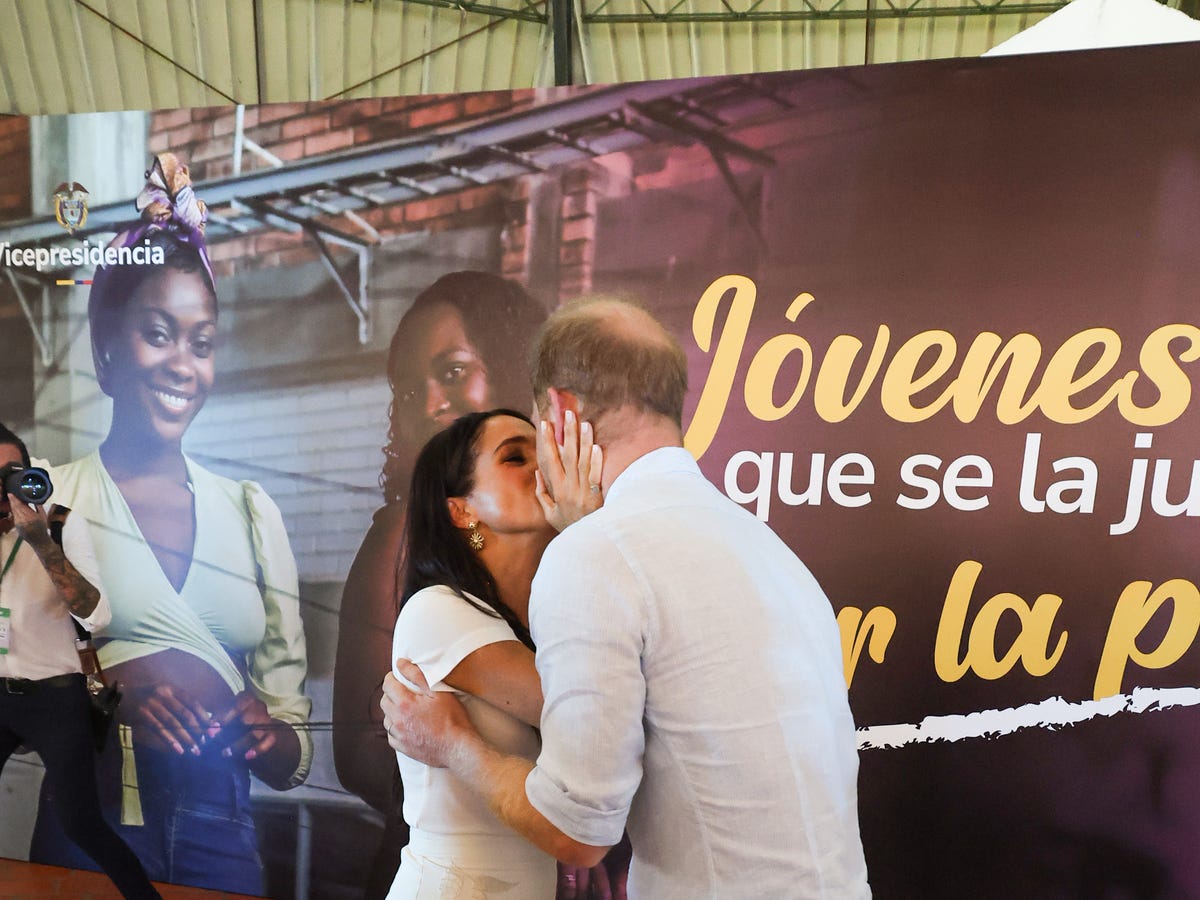In the latest chapter of the royal saga involving Prince Harry and Meghan Markle, a peculiar situation has emerged surrounding their children, Archie and Lilibet.
This unfolding drama has captivated audiences, reminiscent of a soap opera with a plot twist at every turn.
As the couple navigates their complicated relationship with the British royal family, questions arise about their true motives and the children’s well-being.
Phil Dampier recently weighed in on Harry’s visa challenges, suggesting they might influence his desire to return to the UK.
However, Meghan reportedly opposes this move.
It’s quite the irony that someone who has spent years criticizing the monarchy would hesitate to face the consequences of her actions.
The suggestion that safety concerns prevent them from visiting raises eyebrows, especially given that the UK has provided Harry with protection throughout his life.
The notion that the UK is suddenly unsafe for the couple seems absurd.
After all, this is a country known for its robust security services.
It’s hard to take this claim seriously when they’ve built their careers on public exposure, including a Netflix deal and a tell-all book.
Their insistence on privacy clashes with their actions, making it difficult to believe they genuinely seek a normal life for their children.
Speaking of the children, it’s striking how little we’ve seen of Archie and Lilibet in the UK.
Archie has made only fleeting appearances, while Lilibet has been spotted just once on British soil.
It’s almost comical to think that sightings of these kids are rarer than the Loch Ness monster.
Yet, Harry and Meghan continue to play the privacy card, despite their constant engagement with the media.
King Charles finds himself in a heartbreaking position as he battles cancer and attempts to connect with his grandchildren.
Instead of fostering family ties, Harry and Meghan appear to be using their children as pawns in a high-stakes game.
The idea that they would demand more security or public apologies before allowing the children to see their grandfather is both audacious and disheartening.
Adding fuel to the fire, a friend of Harry’s recently spoke to People Magazine about potential threats and kidnapping fears.
It seems the real danger lies in the ongoing damage to the monarchy’s reputation every time they speak out.
The focus should be on family unity, yet Harry and Meghan seem intent on creating division.
What’s particularly troubling is the stark contrast between how William and Catherine raise their children and how Harry and Meghan approach parenting.
While the Wales family instills a sense of royal heritage and connection to the institution, Harry and Meghan seem to isolate their kids from that legacy.
Meghan’s reluctance to return to Britain speaks volumes about her awareness of her unpopularity.
This entire situation isn’t merely about safety or privacy; it’s about control.
Meghan appears fearful that once their children experience life in the UK, the carefully curated narrative they’ve built might unravel.
The reality is that the British public is not easily fooled; they see through the couple’s antics and are rallying behind the working royals.
The timing of their claims is also suspect, coinciding with King Charles’s health struggles and Catherine’s own challenges.
It feels as though Harry and Meghan thrive on the family’s vulnerabilities, choosing that moment to generate more drama.
Their actions suggest a lack of empathy and a prioritization of their narrative over familial bonds.
Moreover, Meghan’s past comments about burning bridges are telling.
She hasn’t just damaged relationships; she’s obliterated them.
After years of disparaging the royal family, it’s hard to believe her sudden concern for her children’s connections to their relatives.
The hypocrisy is glaring, particularly given how they’ve leveraged their royal status for personal gain.
As Archie and Lilibet grow up, they find themselves caught in a bizarre limbo where their royal heritage is both a blessing and a curse.
They’re being raised in an environment where their lineage is used for publicity but denied in practice.
This contradiction could have lasting implications on their understanding of family and identity.
Despite the turmoil, there remains hope in the resilience of the working royals.
King Charles continues to reach out, demonstrating a commitment to family even in challenging times.
William and Catherine, too, embody the values of duty and service, setting a positive example for their children.
One day, Archie and Lilibet may come to appreciate their heritage and the importance of family, beyond the confines of their parents’ narrative.
As this royal drama unfolds, the innocence of the children is a tragic casualty.
The public watches closely, hoping for a resolution that prioritizes family connections over media spectacles.
In this complex web of royal intrigue, the truth will eventually emerge, and perhaps one day, love and family will triumph over the chaos.

